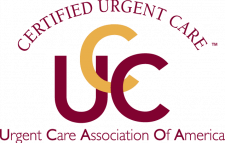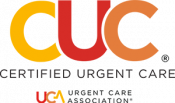The common cold and COVID-19 are widespread, especially in winter. Though they share some symptoms in common, they are two distinct illnesses, and it is important to understand the differences between them.
Common Cold Symptoms
A common cold is usually a mild illness. Affecting people worldwide, the common cold circulates year-round but often causes more sickness in the winter months. A cold generally involves certain recognizable symptoms:
- Runny nose
- Sneezing
- Congestion
- Sore throat
- Cough
- Fatigue
- Headache
COVID Symptoms
Infection with the COVID-19 virus results in illness that may be mild for some and severe for others. Symptoms can vary from person to person but often include a combination of the following:
- Cough
- Sore throat
- Shortness of breath
- Runny nose
- Congestion
- Change in taste or smell
- Fever
- Chills
- Fatigue
- Nausea
- Vomiting
- Diarrhea
Cold Vs. COVID
A cold virus is typically spread by respiratory droplets when sufferers cough or sneeze. It may also be contracted from surfaces contaminated with the virus. A common cold generally involves mild symptoms that resolve after a few days to a week. A cold affects people of all ages and is typically a mild illness that runs its course without complications.
Treatment targets symptom relief and may include decongestants, nasal sprays, cough medicine, lozenges, or pain medication. Drinking extra fluids and getting plenty of rest aid in recovery. Hand hygiene using warm, soapy water or hand sanitizer and covering your cough can help prevent a cold from spreading.
Like a cold, COVID-19 is also spread by respiratory droplets released by sneezing or coughing. It can also be spread through small airborne viral particles and, in some cases, could be contracted from contaminated surfaces. Careful hand hygiene, avoiding others infected with COVID-19, and wearing a mask can help prevent transmission. A COVID-19 infection may be a mild illness, especially for children and younger adults. Older adults and people with certain health conditions are at risk for more severe illness:
- Heart disease
- Chronic lung conditions
- Kidney disease
- Sickle cell disease
- Obesity
- Diabetes
- Smoking
- Cancer
- Suppressed immunity
- Down syndrome
- Pregnancy
Complications of a more severe COVID-19 infection can include pneumonia, blood clots, acute respiratory distress syndrome (ARDS), heart problems, and organ failure. If you are at risk for severe COVID and are exposed or test positive, you may be a candidate for certain antiviral medications that may reduce the severity and duration of your illness.
Treatment for a mild COVID-19 infection centers on relieving symptoms. Pain relievers and cough medicine may be beneficial. Rest, a healthy diet, and adequate fluid intake are also important in recovery.
Urgent Care for a Cold or COVID
If you are struggling with a bad cold or are experiencing symptoms that lead you to suspect you may have COVID-19, visit us at any of our three Emerald Coast Urgent Care Locations: Destin, Panama City Beach, or Inlet Beach. Our experienced providers will discuss your symptoms and do an assessment. We can test you for COVID in our on-site labs and prescribe appropriate medications to relieve your symptoms and aid your recovery.
Whether you need common cold treatment or testing and treatment for COVID-19, we are ready to care for you. Contact us with any questions.




